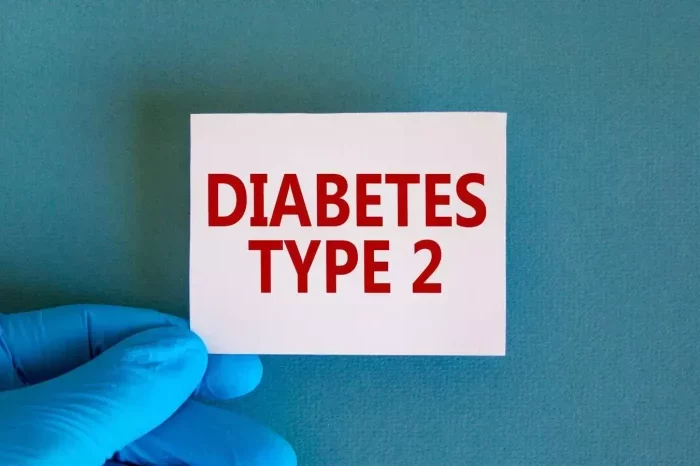Diabetes mellitus is a chronic metabolic disorder characterized by high blood glucose levels. It occurs either due to the body’s inability to produce sufficient insulin or the cells’ resistance to insulin. The condition can lead to severe health complications if not properly managed. This article will explore the various effects of diabetes mellitus, including its short-term and long-term implications, complications, and the importance of effective management.
Understanding Diabetes Mellitus
Types of Diabetes Mellitus
Diabetes mellitus is classified into several types, primarily:
Type 1 Diabetes: This form of diabetes is usually diagnosed in children and young adults. It occurs when the immune system attacks insulin-producing beta cells in the pancreas. Individuals with Type 1 diabetes require lifelong insulin therapy.
Type 2 Diabetes: This is the most common form of diabetes, often developing in adults. It occurs when the body becomes resistant to insulin or when the pancreas fails to produce enough insulin. Lifestyle factors, genetics, and obesity play significant roles in its development.
Gestational Diabetes: This type occurs during pregnancy and usually resolves after childbirth. However, it increases the risk of developing Type 2 diabetes later in life for both mother and child.
Pathophysiology of Diabetes
Diabetes affects how the body processes glucose, the primary source of energy for cells. Insulin, produced by the pancreas, helps glucose enter cells. In diabetes, either the body does not produce enough insulin (as in Type 1) or the cells do not respond effectively to insulin (as in Type 2).
When insulin is insufficient or ineffective, glucose builds up in the bloodstream, leading to hyperglycemia. This state of elevated blood sugar can result in both immediate and long-term effects on the body.
Immediate Effects of Diabetes Mellitus
Hyperglycemia
Hyperglycemia, or high blood sugar, is one of the immediate effects of diabetes. It can cause several symptoms, including:
Frequent Urination: The kidneys attempt to excrete excess glucose, leading to increased urine production.
Increased Thirst: The loss of fluids through urination can cause dehydration, resulting in excessive thirst.
Fatigue: Cells are unable to use glucose effectively for energy, leading to fatigue and weakness.
Blurred Vision: High blood sugar can cause changes in the lens of the eye, leading to temporary vision changes.
Diabetic Ketoacidosis (DKA)
Diabetic ketoacidosis is a serious and potentially life-threatening condition that primarily affects individuals with Type 1 diabetes. It occurs when the body starts breaking down fat for energy due to a lack of insulin, leading to the production of ketones. Symptoms include:
- Nausea and vomiting
- Abdominal pain
- Rapid breathing
- Fruity-smelling breath
- Confusion or difficulty concentrating
DKA requires immediate medical attention and is often treated in a hospital setting.
Hyperglycemic Hyperosmolar State (HHS)
HHS is a severe condition that can occur in individuals with Type 2 diabetes. It is characterized by extremely high blood sugar levels, leading to dehydration and electrolyte imbalances. Symptoms may include:
- Extreme thirst
- Frequent urination
- Confusion
- Weakness
HHS is a medical emergency that also requires prompt treatment.
Long-Term Effects of Diabetes Mellitus
If not managed effectively, diabetes can lead to several long-term complications that affect various organs and systems in the body. These complications can significantly impact quality of life and increase morbidity and mortality.
Cardiovascular Disease
Individuals with diabetes are at a higher risk of developing cardiovascular disease (CVD), which includes heart attacks, stroke, and peripheral artery disease. Factors contributing to this risk include:
Atherosclerosis: High blood sugar can damage blood vessels, leading to plaque buildup and narrowing of arteries.
Hypertension: Diabetes often coexists with high blood pressure, further increasing the risk of heart disease.
Neuropathy
Diabetic neuropathy is a type of nerve damage that occurs due to prolonged high blood sugar levels. Symptoms may include:
- Numbness or tingling in the hands and feet
- Pain or burning sensations
- Muscle weakness
Neuropathy can lead to balance issues, injuries, and infections.
Retinopathy
Diabetic retinopathy is a condition that affects the eyes, resulting from damage to the blood vessels in the retina. It can lead to vision problems and, if untreated, can result in blindness. Stages of retinopathy include:
Non-proliferative Retinopathy: Early stage with mild changes in the retina.
Proliferative Retinopathy: Advanced stage with new blood vessel growth, which can lead to severe vision loss.
Nephropathy
Diabetic nephropathy is kidney damage caused by diabetes. It is characterized by:
Proteinuria: The presence of protein in urine, indicating kidney damage.
Decreased Kidney Function: Progressively leads to end-stage renal disease (ESRD), requiring dialysis or kidney transplantation.
Foot Complications
Diabetes can lead to foot problems due to poor circulation and nerve damage. Common issues include:
Ulcers: Sores that can develop on the feet due to decreased blood flow and loss of sensation.
Infections: Ulcers can become infected, leading to severe complications, including amputation.
Skin Conditions
Individuals with diabetes may experience various skin issues, including:
Bacterial Infections: Increased susceptibility to skin infections.
Fungal Infections: Such as athlete’s foot or yeast infections.
Dental Problems
Diabetes can increase the risk of oral health issues, including:
Gum Disease: Increased inflammation and infection risk in the gums.
Dry Mouth: Can lead to discomfort and an increased risk of cavities.
The Psychological Impact of Diabetes
Living with diabetes can take a significant toll on mental health. The constant need for blood sugar monitoring, dietary restrictions, and medication management can lead to feelings of stress, anxiety, and depression.
Diabetes Distress
Diabetes distress refers to the emotional burden associated with managing diabetes. Symptoms may include:
- Frustration with diabetes management
- Feeling overwhelmed by treatment demands
- Worry about complications and future health
Depression and Anxiety
Studies indicate that individuals with diabetes are more likely to experience depression and anxiety. These mental health conditions can further complicate diabetes management, leading to poor glycemic control and an increased risk of complications.
Management and Prevention of Diabetes Effects
Effective Diabetes Management
Managing diabetes effectively is crucial to preventing the immediate and long-term effects of the disease. Key strategies include:
Blood Sugar Monitoring: Regularly monitoring blood glucose levels allows individuals to make informed decisions about diet, exercise, and medication.
Healthy Eating: A balanced diet rich in whole foods, fiber, and healthy fats can help regulate blood sugar levels. Key dietary recommendations include:
- Incorporating vegetables, fruits, whole grains, lean proteins, and healthy fats.
- Limiting refined carbohydrates, added sugars, and saturated fats.
Physical Activity: Regular exercise improves insulin sensitivity and helps maintain a healthy weight. It is recommended to engage in at least 150 minutes of moderate-intensity aerobic activity per week.
Medication Adherence: Individuals with diabetes should adhere to their prescribed treatment plans, including taking medications as directed and attending regular check-ups.
Education and Support: Diabetes education programs and support groups can provide valuable resources and support for individuals living with diabetes.
Preventing Complications
Preventing complications requires proactive management strategies:
Regular Health Check-ups: Routine medical check-ups can help monitor for complications. Key screenings include:
- Annual eye exams to check for diabetic retinopathy.
- Regular foot exams to monitor for ulcers and infections.
- Kidney function tests to assess for nephropathy.
Quitting Smoking: Smoking cessation is crucial for reducing the risk of cardiovascular disease and other complications.
Stress Management: Engaging in stress-reducing activities, such as meditation, yoga, and mindfulness, can improve mental health and overall well-being.
The Role of Healthcare Providers
Healthcare providers play a vital role in managing diabetes and preventing its effects. Collaborative care models that include endocrinologists, dietitians, diabetes educators, and mental health professionals can help address the various aspects of diabetes management.
See also: What Milk is Best for Type 2 Diabetes?
Conclusion
Diabetes mellitus has profound effects on the body, impacting both physical and mental health. The immediate and long-term complications of diabetes can significantly affect an individual’s quality of life. However, with effective management strategies, including blood sugar monitoring, healthy eating, regular exercise, and medication adherence, individuals can reduce the risk of complications and lead fulfilling lives.
Understanding the effects of diabetes is essential for both patients and healthcare providers. With knowledge, support, and proactive management, the burden of diabetes can be minimized, allowing individuals to thrive despite their diagnosis. By prioritizing diabetes education and self-management, we can foster a healthier future for those living with diabetes mellitus.
Related topics:
What Bread is Best for Type 2 Diabetes?



























